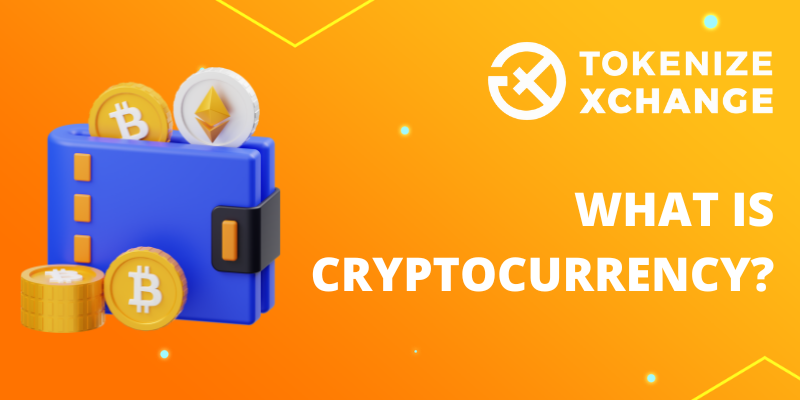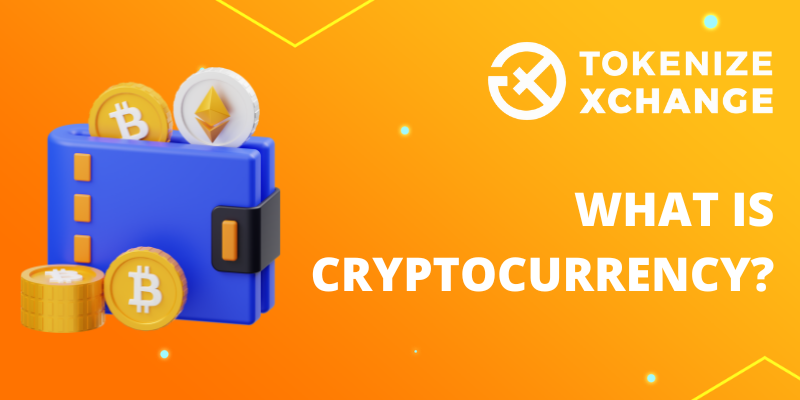A cryptocurrency is a digital form of money used as a medium of exchange over the internet secured by cryptography. There are more than 20,000 different cryptocurrencies in circulation, with Bitcoin widely accepted as the first and the most popular token, followed by Ethereum and other tokens which are collectively known as altcoins.
The word “crypto” refers to the various encryption algorithms and cryptographic techniques, such as elliptical curve encryption, public-private key pairs, and hashing functions. That cryptographic proof comes in the form of transactions that are verified and recorded on a blockchain.
A blockchain is an open, distributed ledger that records transactions in a code. In practice, it’s like a balanced chequebook that’s distributed across countless computers around the world. Transactions are recorded in “blocks” that are then linked together on a “chain” of previous cryptocurrency transactions.
With a blockchain, everyone who uses a cryptocurrency has their own copy of this book to create a unified transaction record. The software logs each new transaction as it happens, and every copy of the blockchain is updated simultaneously with the new information, keeping all records identical and accurate.

At its core, cryptocurrency is typically a decentralised digital currency designed to be used over the internet. Bitcoin, which was first launched in 2008, was the first cryptocurrency, and it remains by far the biggest, most influential, and best-known.
What can I use cryptocurrency for?
You can use crypto to buy regular goods and services, although most people invest in cryptocurrencies as they would in other assets, like stocks or gold as part of their investment portfolios.
- Shop: There are selected merchants worldwide that accept cryptocurrencies as a form of payment for people to purchase goods and services.
- Donate to causes: As users can quickly send crypto to one another without a centralized party, many non-profit organizations accept donations in the form of cryptos such as Bitcoin and Ethereum.
- Gift it: Cryptocurrency represents a great gift for your loved ones who are interested in learning about the space.
- Tip someone: Authors, musicians, and other online content creators sometimes leave Bitcoin addresses or QR codes at the end of their articles. If you like their work, you can leave some crypto for them as a way of saying thanks.
- Explore unique new combinations of money and technology: Orchid is a VPN, which helps protect you when you’re online, and a digital currency at the same time. It’s broken down into two parts, the Orchid VPN app and the OXT cryptocurrency, and it all runs on the Ethereum network. Intrigued? Read more here.
- Travel the world: Because cryptocurrency isn’t tied to a specific country, travelling with crypto can cut down on money exchange fees. There’s already a small but thriving community of self-titled “crypto nomads” who primarily, or in some cases exclusively, spend crypto when they travel. The presence of Bitcoin ATMs to sell your crypto into cash in selected countries also adds to the convenience when travelling.
- Buy assets such as avatars and property in the metaverse: A metaverse is a network of 3D virtual worlds focused on social connection. Decentraland, which also runs on the Ethereum blockchain, is the first virtual world entirely owned by its users. Users can buy or sell NFTs such as land, avatar and its clothing, and all kinds of other stuff while partying in virtual nightclubs or mingling in virtual art galleries. There are also exciting activities such as games and events to be held in the Metaverse.
- Explore decentralized finance or DeFi: A wide variety of new players are aiming to recreate the entire global financial system, from mutual-fund-like investments to loan-lending mechanisms and way beyond, without any central authorities.
The Pros and Cons
Pros:
- Faster money transfer
- Low cost of transaction fees
- Trades around the clock (24/7)
- Hedge against inflation
- Decentralised systems that do not collapse at a single point of failure
Cons:
- High price volatility
- An irreversible process if you made a transaction mistake
- Could be misused in criminal activities due to the anonymous nature of the transactions
- Vulnerable to certain security risks.
- Lack of clarity in regulations worldwide.
Security and safety of cryptocurrencies
Almost all cryptocurrencies, including Bitcoin, Ethereum and Litecoin are secured using blockchain which is constantly checked and verified by a huge amount of computing power. Cryptocurrency is secure because all transactions are vetted by a blockchain. Each currency has its own blockchain, which is an ongoing, constantly re-verified record of every single transaction ever made using that currency. The systems are permissionless and the core software is open source, meaning everyone can have an excess to look at and examine all aspects of the networks and their security.
The public-private key cryptography technology used in cryptocurrency for transactions helps to ensure security. A private key is an ultra-secure password that you should only keep to yourself, with which you can send value on the network. An associated public key can be freely and safely shared with others to receive value on the network. From the public key, it is impossible for anyone to guess and get your private key.
In cryptocurrencies, when you make a transaction, you’re announcing to the network that you want to move your currency. This is announced in a message (i.e., transaction), which is signed and added to the cryptocurrency’s database (the blockchain). You need your private key to create the digital signature to approve the transaction. And since anyone can see the database, they can check that your transaction is valid by checking the signature.
How to buy cryptocurrencies
The easiest way to acquire cryptocurrency is to purchase on an online exchange like Tokenize Malaysia. Tokenize Malaysia is a local exchange regulated by the Securities Commission Malaysia for you to trade cryptocurrencies. On Tokenize Malaysia, you can buy major cryptocurrencies like Bitcoin (BTC), Ethereum (ETH), Litecoin (LTC), Ripple (XRP), Solana (SOL), Uniswap (UNI) and more. It is worth remembering that you do not need to buy a whole coin, you can just buy a portion of it. Think of it as buying a piece of the pie. You can buy portions of coins in increments with FIAT currencies such as our local Malaysian Ringgit (RM).
Why should I invest in cryptocurrencies?
- Diversify your investment portfolio: It’s good to buy you some protection during economic volatility and as the saying goes, don’t put all your eggs in one basket.
- Be part of the transformation technology: There is a lot of potential in the future of blockchain technology and you give yourself a chance to keep learning about the developments in the field.
- Transparent and secure: Cryptocurrencies are popular due to their thorough transparency, owing to open-source and publicly-verifiable technology.
- Deflationary assets: Bitcoins and other cryptocurrencies have a limited supply. This makes them deflationary assets, which means the purchasing power increases over a period of time. Each cryptocurrency has an algorithm that puts a cap on its total supply.
- Flexible and Independent trading: The 24/7 accessibility of crypto trading makes it extremely flexible for traders to manage and organise their trading during any part of the day.
- Hedge against inflation: As the value of a token increases, it may help to protect a person’s purchasing power against inflation and rising consumer prices.
Last but not least, do your own research (DYOR) is the first thing you should keep in mind to keep yourself informed of accurate and valid information about cryptocurrencies, as well as to understand the risk related to cryptocurrency before you invest in it.
